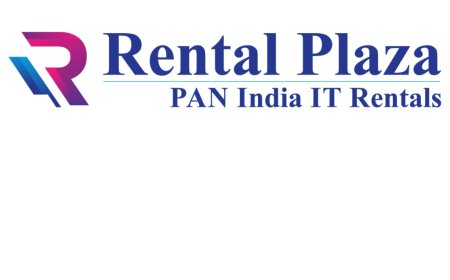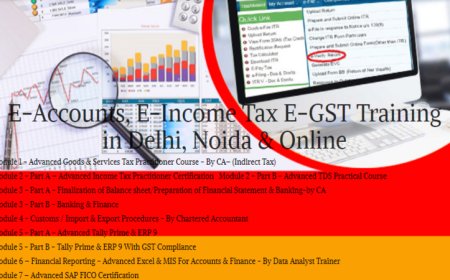Sole Proprietorship vs. Private Limited Company: The Ultimate Guide ?
Sole Proprietorship vs Private Limited Company

Choosing the right business structure is a big decision. It impacts your liability, taxes, and growth potential. Many entrepreneurs in India weigh two popular options: Sole Proprietorship and Private Limited Company. Let's break down everything you need to know.
Sole Proprietorship: Simplicity Personified
ASole Proprietorship vs Private Limited Companyis the easiest business to start. You are the business. There's no legal distinction between you and your venture.
Pros of a Sole Proprietorship:
-
Easy Setup:Minimal paperwork. Quick registration.
-
Low Cost:Cheaper to form and maintain.
-
Full Control:You make all the decisions. No shared ownership.
-
Simple Taxation:Profits are taxed as your personal income.
Cons of a Sole Proprietorship:
-
Unlimited Liability:This is the biggest drawback. Your personal assets are at risk. Business debts are your debts.
-
Limited Funding:Banks are hesitant to lend to sole proprietorships. Attracting investors is difficult.
-
No Perpetual Succession:The business ends if something happens to you.
-
Perceived Less Credibility:Customers and partners might view it as less professional.
Private Limited Company: The Structured Approach
A Private Limited Company (Pvt Ltd Co) is a separate legal entity. It has its own identity, distinct from its owners. This separation offers significant advantages.
Pros of a Private Limited Company:
-
Limited Liability:Your personal assets are protected. Your liability is limited to your share capital. This is a huge benefit.
-
Perpetual Succession:The company continues even if directors or shareholders change. It has a life of its own.
-
Enhanced Credibility:A Pvt Ltd Co looks more professional. It inspires trust in clients and investors.
-
Easier Funding:Banks prefer lending to companies. You can raise capital through equity. Investors are more willing to invest.
-
Employee Stock Options (ESOPs):You can offer ESOPs to attract and retain talent.
-
Brand Value:A company structure helps build a stronger brand.
Cons of a Private Limited Company:
-
Complex Setup:More paperwork is involved. It requires more legal formalities.
-
Higher Compliance:Regular filings with the Registrar of Companies (ROC) are mandatory. Annual audits are required.
-
Higher Cost:Formation and maintenance costs are higher.
-
Less Control:You share control with other directors and shareholders.
-
Taxation:Companies are taxed separately. They pay corporate tax on their profits.
Key Differences at a Glance
Let's compare them directly:
-
Legal Identity:Sole Proprietorship (No separate identity) vs. Private Limited Company (Separate legal entity).
-
Liability:Sole Proprietorship (Unlimited) vs. Private Limited Company (Limited).
-
Funding:Sole Proprietorship (Difficult) vs. Private Limited Company (Easier).
-
Compliance:Sole Proprietorship (Low) vs. Private Limited Company (High).
-
Continuity:Sole Proprietorship (No perpetual succession) vs. Private Limited Company (Perpetual succession).
Taxation: What You Need to Know
Sole Proprietorship Taxation:
Your business income is treated as your personal income. You pay tax based on your individual income tax slab rates. This can be beneficial for lower turnovers.
Private Limited Company Taxation:
The company pays corporate tax on its profits. Dividends distributed to shareholders are also taxed. This structure can offer tax planning opportunities for higher profits. Consulting a tax professional is crucial here.
MSME Certificate: A Must-Have for Both
Regardless of your structure, consider obtaining anMSME Certificate. This registration under the Micro, Small and Medium Enterprises Development Act, 2006, offers numerous benefits. You get priority in government tenders. You can access collateral-free loans. You enjoy faster dispute resolution. Reduced patent registration fees are another perk. TheMSME Certificatetruly supports small businesses.
Which One is Right for You?
Choose a Sole Proprietorship if:
-
You are starting small.
-
You have limited capital.
-
You want full control.
-
You have low-risk business activities.
-
You prioritize simplicity.
Choose a Private Limited Company if:
-
You plan to scale your business.
-
You need external funding.
-
You want to protect personal assets.
-
You aim for higher credibility.
-
You are comfortable with more compliance.
Expert Advice for Your Registration
Navigating company registration can be complex. Especially with a Private Limited Company. You need an expert by your side. For the best "private ltd company registration" consultation, Taxlegit is your go-to. Their team of tax consultants understands the nuances. They simplify the entire process. From documentation to filings, they ensure a smooth and efficient registration. Don't let paperwork intimidate your dreams. Taxlegit provides comprehensive support. They guide you every step of the way. Make an informed choice for your business future.





























































